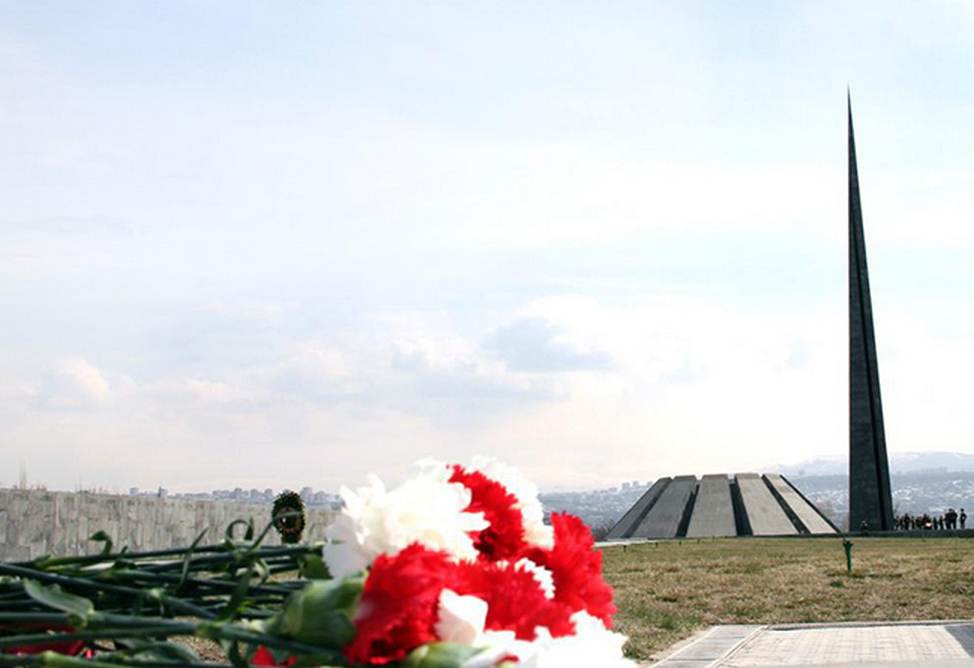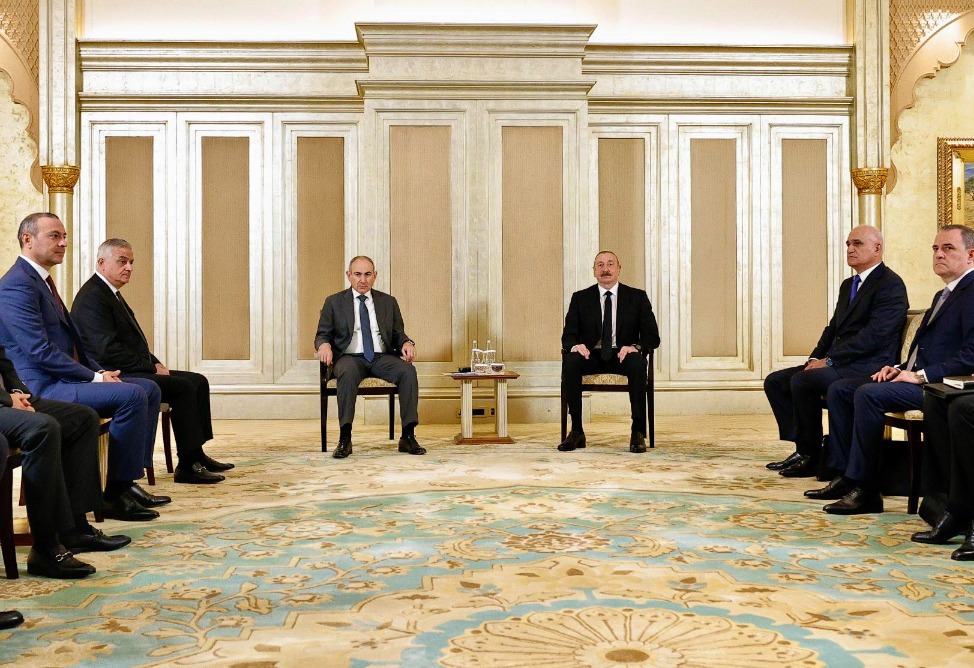Armenia and other nations commemorate the victims of the Armenian Genocide

YEREVAN, April 24. /ARKA/. On this day, April 24, Armenia and many other countries mark the 110th anniversary of the first genocide of the 20th century, which resulted in the loss of approximately 1.5 million Armenian lives.
As is customary, hundreds of thousands of Armenians made their way to the Tsitsernakaberd memorial complex in Yerevan starting the evening of April 23, where they placed flowers at the Eternal Flame.
The day prior, a traditional torchlight procession was held, organized by the youth wing of the ARF Dashnaktsutyun. Participants walked from Republic Square to Tsitsernakaberd, with tens of thousands, primarily young individuals, carrying lit torches and candles to honor those who were lost.
History of Genocide
The physical extermination of Armenians on national grounds in Ottoman Turkey in 1915 was the first genocide of the 20th century. April 24 is considered the symbolic day of remembrance for the victims of the planned crime aimed at the destruction of the Armenian people.
It was on this day in 1915 that the Young Turk authorities arrested and subsequently killed about a thousand representatives of the Armenian intelligentsia in Constantinople (Istanbul) - scientists, writers, artists, teachers, doctors, publicists, representatives of the clergy, and public figures.
The second stage of the "final solution" of the Armenian Question was the conscription of about 300 thousand Armenians into the Turkish army, who were later disarmed and killed by their own Turkish comrades.
The third stage of the Genocide was marked by the massacre, deportation and "death marches" of women, children and the elderly to the Syrian desert of Der Zor. During the deportation, hundreds of thousands of people were killed by Turkish soldiers, gendarmes and Kurdish gangs. The rest died of hunger and epidemics. Thousands of women and children were raped, tens of thousands were forcibly converted to Islam.
On the eve of World War I, two million Armenians lived in the Ottoman Empire. About one and a half million were killed between 1915 and 1923. The remaining half a million Armenians were scattered throughout the world.
But the history of the deliberate extermination of Armenians is not limited to the period of the Genocide. After the Russo-Turkish War of 1877-1878, the Christian peoples of the Balkan countries were freed from the yoke of the Ottoman Empire. By 1912, the Ottoman Empire had lost almost all of its possessions in Europe, except for Istanbul and its environs. As a result, the Armenians of Western Armenia turned out to be the most numerous Christian people remaining under the imperial yoke.
In order to maintain its power in the Asian part of the territory, the government of the Ottoman Empire set the task of forcibly assimilating or exterminating Western Armenians who were preventing the creation of a pan-Turkic state.
A systematic policy of exterminating Armenians in their historical homeland began in the 1890s and reached its peak during the First World War.
The direct organizer of the Genocide was the Young Turk Party "Unity and Progress", which was supported by the government of Kaiser Germany, an ally of the Ottoman Empire in the First World War. The organizers of the crime managed to escape punishment, but the leaders of the Young Turks were found and destroyed by Armenian patriots in different parts of the world.
The best representatives of the world intellectual elite spoke out in support of the Armenian people during the Genocide: Anatole France, Franz Werfel, Valery Bryusov, Maxim Gorky, Fridtjof Nansen and many others.
International recognition
Turkey denies the accusations of mass extermination of more than 1.5 million Armenians during the First World War and reacts extremely painfully to criticism from the West on the issue of the Armenian genocide.
The fact of the Armenian Genocide has been recognized by many states and a number of authoritative international organizations. The first country to recognize the Genocide in 1965 was Uruguay, followed by Cyprus, Russia, Greece, Canada, the Chamber of Deputies of Italy, Lebanon, Belgium, France, Paraguay, Argentina, Sweden, Bolivia, Great Britain, Holland, Slovakia, Germany, Lithuania, Venezuela, Poland, Chile, Switzerland, Brazil, Luxembourg, Austria, the Vatican, the Czech Republic, Denmark, Portugal, as well as the provisional government of Libya, 49 states and both houses of the US Congress, Syria, the European Parliament, the World Council of Churches.-0-



